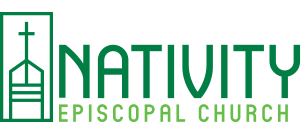I sat on the dais looking out at the large room filled to capacity and worked hard to mask my ever increasing vital signs. The present speaker was well into his lengthy introduction of me – an introduction that was not only embarrassing but frankly infuriating. I had met this gentleman just moments before the gathering where I was to speak when he said, “I’ll do a brief intro and then invite you to the podium.”
My understanding was that he would say very few words since my personal information was covered thoroughly in both the promotional material and in the program – all of which was approved before hand. This fellow, on the other hand, decided to cherry pick from sermons, blogs, and public speaking engagements to create a narrative that suited his preconceived or preferred assumptions about me; the majority of which were factually incorrect.
The next day I was venting to a close friend about my experience. After listening for quite some time she mused, “I wonder if it’s possible to actually go a day without making any assumptions.” Her redirect quickly moved me from rant to pondering how my of own assumptions impact how I navigate the world. Colleague Mary Kay DuChene from LeaderWise recently wrote in one of her blogs, “Examining our inconsistencies and assumptions will also help us become more aware of the values and principles that guide our lives, and the (often conflicting) nuances that accompany them.”
The reality is each of us has a lens through which we view the world. Our lens has been constructed through the experiences of our lives, both positive and negative, and reinforced or refuted by those that either knowingly or unknowingly influence our lives. The frame of our lens is a set of unspoken, often even unconscious assumptions of how the world and those we encounter fit within our lens. We see a person or a situation and we assess, judge, categorize and then create our working assumption.
To my friend’s wondering, I actually am uncertain if we can live without assumptions. It just may be the way we are wired. However what I do unequivocally believe is that we all have the capacity to confront our assumptions. Part of that capacity is to do our own work of truly examining our lens, specifically how that lens has been shaped by our own culture, context and bias. Does my assumption truly reflect, as Mary Kay suggested, my true principles and values? And maybe even more importantly, am I willing to be open to a new understanding, a new perspective through allowing others to share their story, their perspective?
I love the story where Jesus of Nazareth asks the question about who do people say he is, and then continues to push his companion Peter, “But who do YOU say that I am?” What are the assumptions others are making about me, and from that what assumptions are you making? As theologian Thomas Merton said, “There are times when, in mercy, God must shatter our assumptions.”
May it be so with me!
Source: Bishop Brian Prior – Live Without Assumptions?
